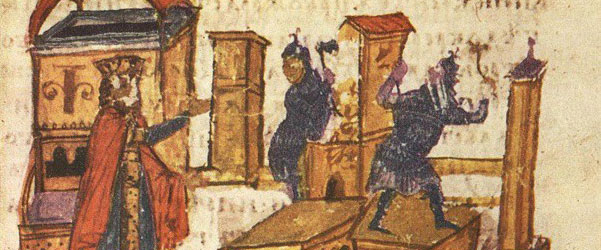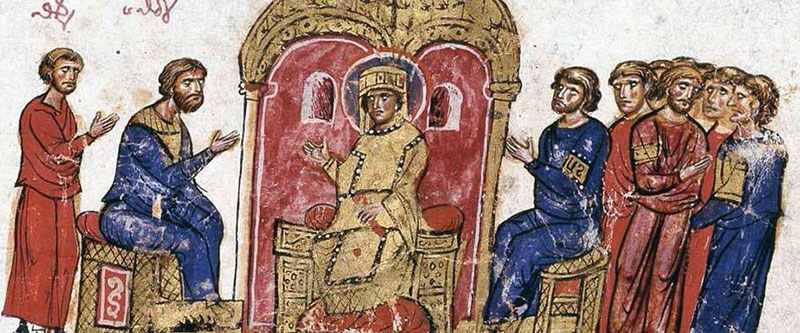Some Christians naively assume that love requires us to maintain personal relationships with all sorts of people without any kind of discrimination. It is often pointed out that Jesus was “a friend of sinners” who spent time building relationships with the tax collectors and prostitutes.
While this is undoubtedly true of the Lord Jesus, it is often conveniently omitted that Jesus was seeking to call such people to repentance (Luke 5:32). Nevertheless, the idea prevails that Christian love demands indiscriminate relationships with all kinds of sinners.
I want to submit to you that this is a completely unbiblical idea.
The Bible unequivocally teaches us to avoid certain kinds of people. For starters, take the situation of an excommunicated church member in 1 Corinthians 5. We are told “not to associate” with such a person (1 Cor. 5:9, 11). The avoidance called for in these verses includes not even eating with such a person (1 Cor. 5:11). This would surely be denounced as unloving by many in the church today and contrary to the spirit of Jesus. Attempts would be made to explain away the force of the words. But there really is no way to discount the plain teaching of Scripture in this regard. We are commanded by the Lord: do not associate with the professing Christian who stubbornly refuses to repent of sin.
Another example can be found in 2 Timothy 3:1-5 which speaks about the wickedness that abounds in the last days.
“But understand this, that in the last days there will come times of difficulty. For people will be lovers of self, lovers of money, proud, arrogant, abusive, disobedient to their parents, ungrateful, unholy, heartless, unappeasable, slanderous, without self-control, brutal, not loving good, treacherous, reckless, swollen with conceit, lovers of pleasure rather than lovers of God, having the appearance of godliness, but denying its power.”
This description of ungodly times sounds all too familiar. And notice how Paul tells us to relate to these kinds of people. He says, “Avoid such people” (2 Tim. 3:5). Notice that there is nothing here to indicate that he is referring to excommunicated persons which was the case in 1 Corinthians 5. Here he is speaking in general about people who are wholly given over to wickedness. We need to remember that total depravity does not mean that every single human on the planet is equally depraved. There are degrees of sin, and there are degrees of being given over to sin. We need wisdom therefore to discern the kinds of people we must avoid.
We are given one primary reason for avoiding such people. 1 Corinthians 15:33 says, “Do not be deceived: Bad company ruins good morals.” Spending time with ungodly people shapes our thoughts, beliefs, actions, and general character. Personal relationships are highly influential on one’s life. Bad friendships and associations can be cancer to the soul. This was the general reason to avoid wicked people in the Old Testament. The Psalter opens with these words:
“Blessed is the man who walks not in the counsel of the wicked, nor stands in the way of sinners, nor sits in the seat of scoffers.”
Here there is a clear summons to avoid ungodly company. How foolish it is to appeal to the example of Jesus to overturn this clear scriptural teaching! Jesus is the blessed man par excellence. Our Lord affirms and upholds the wisdom of separation from ungodly society.
The book of Proverbs is full of warnings about entertaining relationships with those who would corrupt our character. Consider the example of Proverbs 22:24: “Make no friendship with a man given to anger, nor go with a wrathful man.” It is supremely unwise to think that we can befriend every man. While we should seek to do good to all men and should not harbor bitter feelings toward any person, we are not called to maintain personal relationships with those who are destroying themselves and are likely to bring us down with them.
We also have exhortations to disassociate with false teachers and those who bring division into the church. When Paul wrote to the Romans, he said,
“I appeal to you, brothers, to watch out for those who cause divisions and create obstacles contrary to the doctrine that you have been taught; avoid them” (Rom. 16:17).
And when writing to Titus, he said,
“As for a person who stirs up division, after warning him once and then twice, have nothing more to do with him, knowing that such a person is warped and sinful; he is self-condemned” (Titus 3:10).
There is an interesting account from church history that illustrates this point. Polycarp was the Bishop of Smyrna and was a disciple of the Apostle John. He relates the following story about how the beloved apostle interacted when he encountered a false teacher:
“John, the disciple of the Lord, going to bathe at Ephesus, and perceiving Cerenthus within, rushed out of the bathhouse without bathing, exclaiming, ‘Let us fly, lest even the bathhouse fall down, because Cerenthus, the enemy of the truth is, within.’”
We may object to John making a scene, but his attempt to flee from a false teacher is in keeping with the spirit of the biblical theology of avoidance. It does not reveal a lack of love or harsh bigotry.
Our personal relationships call for great wisdom. We should not be guilted into thinking that we are bound to maintain relationships with all sorts of people. There are people to be avoided like the plague. This is not unloving or contrary to the spirit of Christianity. In fact, holiness demands it! What is unreasonable, unwise, and unbiblical is to teach Christians that they should associate with ungodly people because it is the loving thing to do. The Holy Spirit says,
“Let no one deceive you with empty words, for because of these things the wrath of God comes upon the sons of disobedience. Therefore do not become partners with them; for at one time you were darkness, but now you are light in the Lord” (Eph. 5:6-7).









